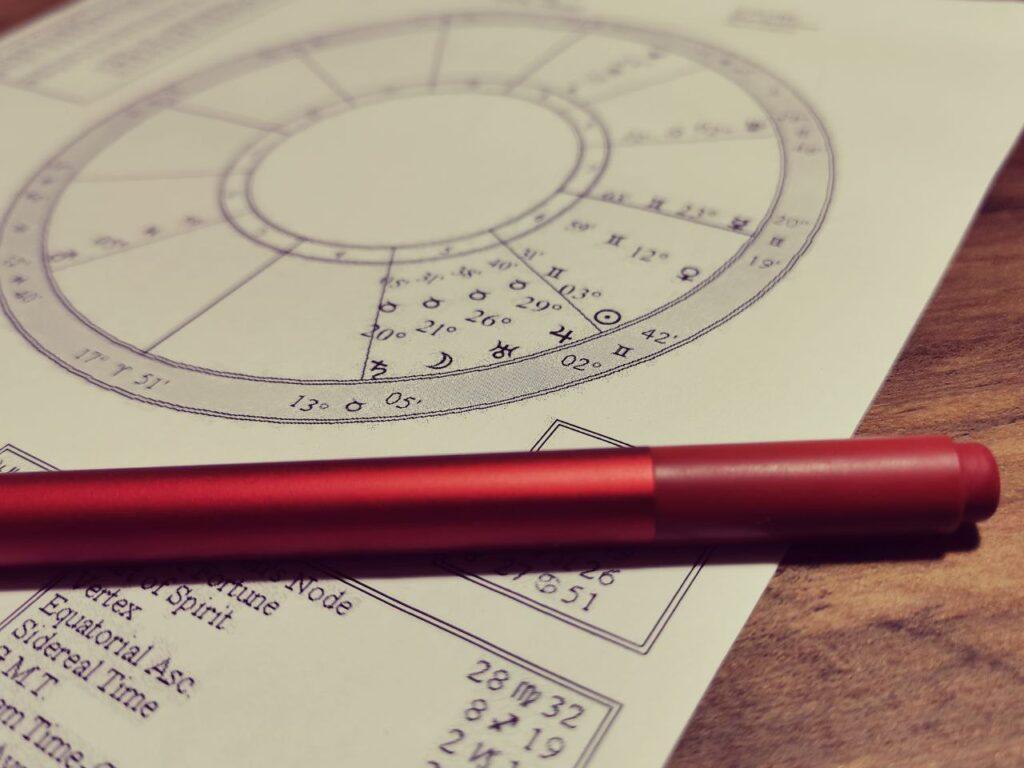
Introduction:
Astrology, an ancient practice that has intrigued humanity for centuries, holds a special place in our cultural tapestry. Western Astrology, in particular, has gained widespread popularity across the globe. In this article, we will delve into the fundamental concepts of Western Astrology, exploring the significance of zodiac signs, planets, and houses. Additionally, we will uncover the historical background and examine the role astrology plays in contemporary society.
The Zodiac Signs:
At the heart of Western Astrology lies the zodiac, a celestial belt divided into twelve signs, each associated with specific characteristics. These signs are Aries, Taurus, Gemini, Cancer, Leo, Virgo, Libra, Scorpio, Sagittarius, Capricorn, Aquarius, and Pisces. Each zodiac sign is believed to inherit unique traits, tendencies, and potentials that shape an individual’s personality and life experiences. For instance, Aries is associated with courage and assertiveness, Taurus with stability and sensuality, Gemini with adaptability and communication, Cancer with nurturing and intuition, and so on. Understanding the zodiac signs is the first step in unravelling the complexities of Western Astrology.
Planets and Their Influence:
Western Astrology attributes great importance to the planets and their positions at the time of a person’s birth. Each planet embodies unique energies that affect different aspects of an individual’s life. For example, Mercury governs communication, intellect, and logic. Venus represents love, beauty, and harmony, influencing one’s romantic inclinations and artistic expression. Mars symbolises action, ambition, and assertiveness, shaping an individual’s drive and approach to challenges. Jupiter signifies expansion, growth, and opportunities, while Saturn embodies discipline, responsibility, and life lessons. The interplay between these celestial bodies creates a complex astrological map that helps decipher personality traits and potential life paths.
The Houses:
The concept of houses in Western Astrology adds another layer of depth to the interpretation of birth charts. The birth chart, also known as the natal chart, is a personalised map that depicts the planetary positions at the moment of an individual’s birth. Divided into twelve houses, each corresponding to a specific area of life, these segments reveal valuable insights into various aspects such as relationships, career, health, and spirituality. The first house, known as the Ascendant, represents the self and physical appearance. The second house focuses on personal resources and values, while the third house pertains to communication and learning. The seventh house deals with partnerships and marriage, and the tenth house pertains to career and public image. Each house represents a different facet of life, providing a comprehensive understanding of an individual’s potentials and challenges.
Historical Background:
The roots of Western Astrology can be traced back to ancient civilizations such as Mesopotamia, Egypt, and Greece. The ancient astrologers believed that the celestial bodies had a profound influence on human affairs and sought to decode the cosmic messages. Astrology thrived in Babylonia, where priests studied the stars and recorded celestial observations. The Greeks, particularly figures like Ptolemy and Hippocrates, contributed to the development of astrology by blending it with their philosophical and medical systems. Over time, astrology gained prominence in Europe during the Renaissance period, where it flourished as a respected and scholarly pursuit. Scholars such as Johannes Kepler and Galileo Galilei made significant contributions to astrological thought. Today, astrology continues to evolve, blending traditional wisdom with modern interpretations and applications.
Astrology in Contemporary Society:
Despite the advancements in science and technology, astrology retains its allure in contemporary society. Many people turn to astrology for self-reflection, personal growth, and guidance in decision-making. Individuals seeking insights into their love life, career choices, and overall well-being have sought after Astrological forecasts, horoscopes, and compatibility analyses. Astrology provides a language of symbols and archetypes that helps individuals understand their strengths, challenges, and potential life paths. By exploring their birth charts, individuals can gain self-awareness, identify patterns, and make informed decisions.
Astrology has also found its place in popular culture. It influences fashion trends, artistic creations, and even entertainment. Many magazines and online platforms feature horoscopes and astrology-related content, catering to the public’s fascination with astrological insights. Celebrities often openly discuss their astrological signs and attributes, adding to the cultural significance of astrology.
Moreover, astrology serves as a tool for building relationships and understanding compatibility. Individuals often explore astrological compatibility to gain insights into their relationships with friends, romantic partners, and colleagues. By comparing birth charts and examining the interplay between zodiac signs and planetary positions, individuals can better understand the dynamics within their relationships.
In addition to personal applications, astrology also finds its place in specialised fields. Some businesses and organisations consult astrologers to determine auspicious times for launching new products or initiating important ventures. Astrology is also utilised in psychological counselling, where it can provide a framework for exploring unconscious patterns, personal motivations, and potential areas of growth.
However, it is important to note that astrology should not be seen as a definitive predictor of fate or a substitute for personal agency. Rather, it offers a perspective that can enhance self-awareness and decision-making. Sceptics argue that astrology lacks scientific evidence, and it should be approached with a critical mindset. While astrology may not have a concrete scientific basis, its value lies in the insights and self-reflection it can inspire.
Conclusion:
Western Astrology offers a captivating lens through which we can explore the mysteries of the cosmos and gain a deeper understanding of ourselves and others. The zodiac signs, planets, and houses provide a rich framework for interpreting birth charts and uncovering hidden potentials. As we appreciate the historical significance of astrology, we witness its continued relevance and impact in contemporary society. Whether we approach it with scepticism or embrace it as a guiding force, Western Astrology remains a fascinating exploration of the human connection to the stars. By delving into the foundations of Western Astrology and acknowledging its diverse applications, we open ourselves to a world of self-discovery and cosmic wisdom.
References
Parker, D., & Parker, J. (2009). Parkers’ Encyclopedia of Astrology. Watkins.
Parker, D., & Parker, J. (2003). Parkers’ Astrology. DK.
Forrest, S. (2001). The Inner Sky: How to Make Wiser Choices for a More Fulfilling Life. Seven Paws Press.
Hand, R. (1981). Horoscope Symbols. Schiffer Publishing.
Hand, R. (2001). Planets in Transit: Life Cycles for Living. Schiffer Publishing.
Greene, L. (1984). The Astrology of Fate. Weiser Books.
Tarnas, R. (2006). Cosmos and Psyche: Intimations of a New World View. Plume.
Rudhyar, D. (2017). The Astrology of Personality: A Reformulation of Astrological Concepts and Ideals. Aurora Press.
Astrology Reports
If you are looking for personalised astrology readings, please click here:
All Astrology Reports for Order
Sun signs alone are not adequate to give even mildly accurate results. The interpretive reports will provide you helpful and useful information.
Important:
Make sure that you select the report(s) that you want to purchase before you proceed.
All sales are final and not refundable.
